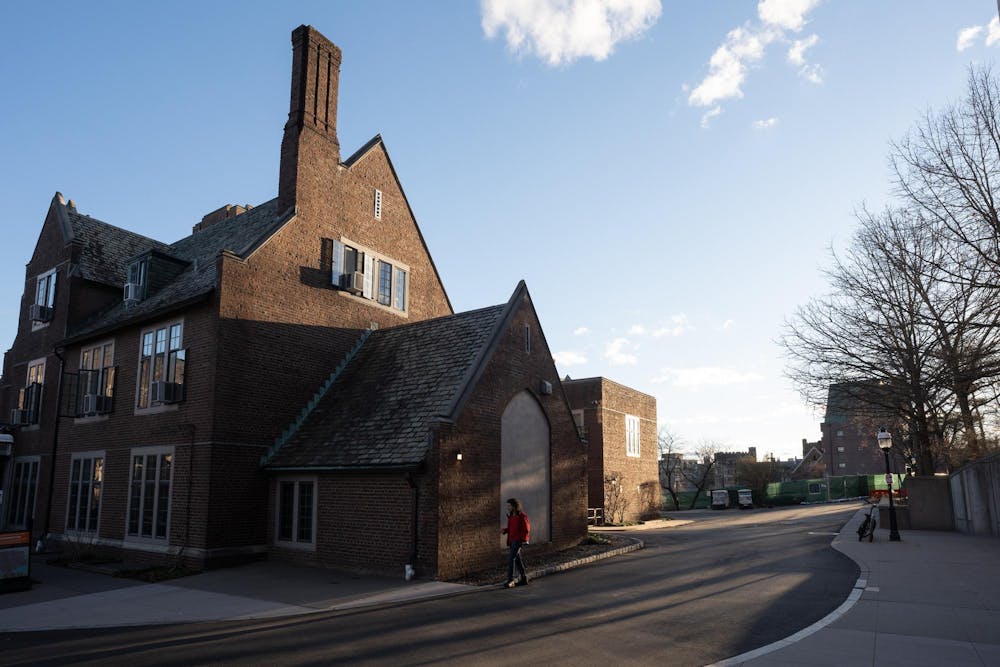When we get back at the end of January, the new Frist Health Center will be open. The new space will be twice as big as the current McCosh infirmary. But we have not yet received word of additional providers being hired nor counseling services that will be on offer.
This is a huge oversight.
With the promise of a new, larger University Health Center, the University must accordingly prioritize expanding the staff at Counseling and Psychological Services (CPS) to properly meet the mental health needs of the student body.
According to The Daily Princetonian’s 2024 senior survey, nearly 75 percent of last year’s seniors considered seeking out counseling during their time at Princeton. Given the current 29 treatment staff members and Princeton’s enrollment of 9,050 graduate and undergraduate students, this would mean that there is approximately one counselor available for every 234 Princetonians who are considering counseling.
From a logistics standpoint, meeting this level of student need with the present counseling staff is not possible. As a result, it’s unsurprising that CPS wait times have previously been the target of criticism, with designated wait times for initial consultations taking up to five days or longer to schedule and with follow-up appointments often taking an additional two weeks. It is no surprise that CPS describes their counseling as “short-term.”
For students who need longer-term care, the University has contacts to providers outside of CPS, but this option is limited logistically: The campus health center is directly in the middle of campus, convenient to everyone. Meanwhile, off-campus appointments may take time to go to, requiring students to take Uber or Lyft, albeit heavily subsidized, trips to appointments. Although telehealth appointments are a strong option, some students prefer or need in-person appointments, which are most conveniently provided within CPS.
Moreover, counselors outside of CPS may be less well-versed in dealing with issues students face specifically at the University. This contrasts with University counselors who pride themselves on “[supporting] the psychological well-being of the Princeton University Community … available at no cost to currently enrolled Princeton students.”
If the purpose of CPS is to treat the student body free of charge, there should be at least as many counselors available as students who are in need. Otherwise, students may be unable to find a counselor well-versed in University student problems specifically or be unable to front the cost of meeting with them on a regular basis.
There isn’t often a better opportunity to fill this gap than the new Frist Health Center, which promises to better treat the health care needs of students on campus. At this moment, there have been no substantive remarks on what the exact role the health center will play in shaping CPS on campus beyond simply being its new location.
Campus expansion, including the new health center, has followed class expansion. But when it comes to health, it’s not just the square footage that we need — it’s the providers. The University should take this opportunity to dedicate resources to expanding counselor availability on campus. This development is allowing the University to set the record straight on mental health at Princeton, after previous unproductive remarks and little change. The University can begin to treat mental health at Princeton as what it is: a crisis.
The construction of the Health Center should not be seen as a crowning achievement of the University unless it comes with a concrete promise to make mental health care more accessible for students at the University. Beyond continuing to reduce financial barriers that prevent students from accessing counseling off-campus, additional counseling staff must come with the relocation.
Students should not worry about waiting weeks to meet with a counselor on the short-term when they are struggling with their mental health. There should be no need for students to be forced to seek counseling off-campus with a fee. These changes are feasible and would mark true progress towards bettering the health of students on campus. The opening of the new Frist Health Center can mark the beginning of this era — if the University wants.

Davis Hobley is a columnist for the ‘Prince,’ and a member of the Class of 2027 who intends to major in Neuroscience. He hails from Rochester, Mich. and can be reached by email at dh2172[at]princeton.edu or his personal Instagram @davis_20.23.








